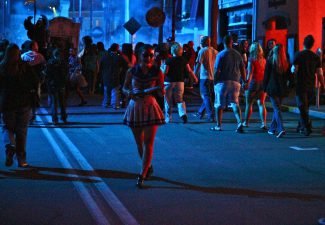When your life is filled with papers, tests, issues with family, and hanging out with friends, sleep is the last thing on anyone’s mind.
However, sleep carries a lot more value than most people give it. Sleep is vital to the body. It helps improves memory and sharpens the mind to accept more information during the day (i.e. during the daily lectures). The body also repairs itself during the late night hours of sleep.
With all the distractions and needs of daytime life, sleep tends to be unimportant and the temptation to sleep less seems more appealing.
According to an article on helpguide.org titled “How Much Sleep Do You Need? Sleep cycles & stages, lack of sleep, and getting the hours you need,” even getting six hours of sleep isn’t enough.
In the article, authors Melinda Smith, M.A., Lawrence Robinson, and Robert Segal, M.A. say, “Researchers at the University of California, San Francisco discovered that some people have a gene that enables them to do well on 6 hours of sleep a night. But the gene is very rare, appearing in less than 3% of the population.”
Lack of sleep can take a toll on the body causing health problems such as lackluster skin (which leaves one looking weak and tired), weaker immune system (which makes you more prone to colds and flus and other various diseases), mood swings (emotions similar to depression), stroke, obesity (sleep helps you lose weight and lack of it messes around with your sugar levels), and heart disease.
A poll was conducted last week on campus among a hundred students to find out how many hours of sleep students are getting on average. 28 percent of females and 18 percent of males get four to six hours of sleep. 56 percent of females and 74 percent of males get six to eight hours of sleep. And, 16 percent of females and six percent of males get eight to ten hours of sleep.
Based on these results, students are not getting the adequate sleep college students need.
A 2011 study published in the European Heart Journal found people who slept fewer than six hours a night were 48 percent more likely to develop or die from heart disease.
Not only can sleep affect the individual, but it can affect others, as well.
Sleep deprivation is the number one cause of accidents on the road. According to Camille Peri’s article “Coping With Excessive Sleepiness: 10 Things to Hate About Sleep Loss”, “The National Highway Traffic Safety Administration estimates that fatigue is a cause in 100,000 auto crashes and 1,550 crash-related deaths a year in the U.S. The problem is greatest among people under 25 years old.”
The benefits of sleep greatly outweigh the negative. So, get some sleep to be prepared for whatever comes your way during the day and to stay alert for class.

 Texas Governor on the Quest for California
Texas Governor on the Quest for California VU Crushes: Here We Go Again…
VU Crushes: Here We Go Again… Coronaversary: A Look Back
Coronaversary: A Look Back Universal Studios Halloween Horror Lines
Universal Studios Halloween Horror Lines
Leave a Reply